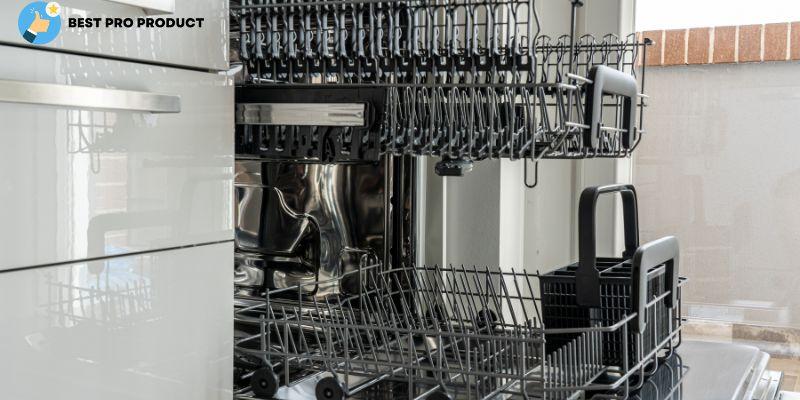Garbage Disposals are the best thing I have done for my kitchen. It keeps checking on the effective management of food waste. Electricity-operated disposal unit demands safety concerns. Turning on the garbage disposal with wet hands always brings me to contemplation Does the Garbage Disposal Need GFCI?
GFCI are meant to ensure electricity safety used in the parts of the home that are regarded as ‘wet areas’ like bathrooms and kitchens. GFCI breaks the electrical circuits when there is an overflow of current passing through the circuit. This way, it protects the electrical appliances and everything around them. So, garbage disposals need GFCI.
This guide is all about ensuring safety measures while using Garbage Disposal.
Does Garbage Disposal Need GFCI
Garbage Disposals are ‘handle with care and caution’ electrical appliances. They plug into a Garbage Disposal Outlet beneath your sink, that’s where water leakage, or water dripping is common. Due to this reason, a GFCI installation can prove beneficial.
The National Electrical Code (NEC) does not require disposal to have GFCI protection. But the Garbage disposal manufacturers call it a mandatory need for garbage disposals.
GFCI (Ground Floor Circuit Interrupter) is widely used in areas where there is direct contact between water and electricity. GFCI Switch Garbage Disposals when installed eliminate the risks of circuit overflow or current imbalances and protect surroundings from any accidents and mishaps.

Garbage Disposal Code Requirements
A garbage disposal complicated device with valuable result. In this regard, National Electrical Code has set some code requirements in concern of avoiding unexpected situations while using garbage disposals.
While installing a garbage disposal, you must abide by these codes:-
- NEC says GFCI protection for garbage disposals is optional.
- All Garbage Disposal outlets within 6 feet of the sink need to have GFCIs.
- It is the electrical configuration that matters the most while installing garbage disposals and determining whether they need GFCI or not.
- Garbage disposals should be either hardwired or connected to an outlet through a grounded electrical outlet.
Hardwired Configuration
This type of garbage disposal wiring does not need an electrical outlet as it is connected directly to the main circuit in the house. So, GFCI protection is not required for this configuration.
Plug-in Configuration
In this configuration, garbage disposals plug into an outlet. You must install GFCI when wiring the disposal in a plug-in configuration. The outlet for the garbage disposal situated in the cabinet under the sink. It can be helpful to have a garbage disposal with a dishwasher.
- Garbage Disposals must have a dedicated circuit.
- The Garbage Disposal and dishwasher can share the same circuit.
Does A Garbage Disposal Unit Need A Dedicated Circuit?
Garbage Disposal consumes a lot of electric power to churn the food waste. In most home settings, garbage disposal and dishwasher share the same circuit. So, it is appropriate for a garbage disposal to have a dedicated circuit.
Remember to connect the garbage disposal to a circuit with a rating of the 15-amp or 20-amp circuit. If it’s sharing the circuit with the dishwasher, a 20-amp circuit will be sufficient.
- Garbage Disposals use 4 amps to 8 amps
- The dishwasher consumes ten amps (average)
The combined consumption of garbage disposals and dishwasher is 14-18 amps so a 20 amp circuit is appropriate.
How Many Amps Does a Garbage Disposal Use
Garbage disposal’s consumption of electricity depends on their different varieties and categories. The amp usage of garbage disposals is between 5 amp to 15 amp. Most disposal units use five and eight amps and some use 3 amps.
Note: “Read our guide How Many Amps Does a Garbage Disposal Use. Learn about their typical amp usage and energy efficiency.”
Does Dishwasher Need GFCI
GFCI used to protect electrical appliances from overheating and stabilize the current flow. If it detects an unusual amount of current flow, it breaks the circuit. Dishwashers are installed in the kitchen and are exposed to water.
Ensure to install the GFCI circuit with the Dishwasher no matter what its electrical configuration is either hard-wired, cord, or plug-connected. NEC has made it necessary for the dishwasher to be GFCI protected.

Does Refrigerator Need GFCI
It is appropriate to use GFCI with all electrical appliances in commercial settings. But for household-used refrigerators, GFCIs not required. Keeping the safe side, you can go for installing GFCI with your refrigerator. If your refrigerator connected to shared circuit outlets, you must use GFCI with it.

What Kind of Outlet Do I Need for a Garbage Disposal?
Garbage Disposals need a GFCI outlet. GFCI are the circuit breakers that work by shutting down the power supply to prevent imbalances in the current flow. You must install a GFCI of 120 volts, or 20 amp with garbage disposals in your home.
Is Under a Kitchen Sink a Wet Location?
Kitchen Sinks are a common location of water exposure so these are regarded as wet locations in the homes. Water dripping or water leaking from the drain pipes accumulates under the sink. It is advisable to have GFCI protection if you have installed a disposal under the sink.
Summing Up
Undoubtedly, Garbage Disposals have become a basic need in every kitchen but abiding by safety measures is the top priority. After a long discussion on Does Garbage Disposal Need GFCI, it is recommended to install a 20 amp GFCI outlet with disposals. GFCI is a good measure of protection and prevents unexpected harm and troubles.

Asad is a garbage disposal enthusiast, mechanical engineer by education, and the visionary founder of Best Pro Product. Asad’s journey has seamlessly blended his engineering acumen with his passion for kitchen gadgets, leading to the creation of a go-to online platform for homeowners and DIY enthusiasts seeking expert guidance on garbage disposals. His meticulous research, hands-on testing, and insightful reviews have established him as a trusted authority, while his commitment to sustainability resonates through his advocacy for proper waste disposal and reduced food waste. Asad’s interactive engagement with his community and his penchant for experimenting with new recipes make him not just an online resource but a friendly companion for those navigating the world of kitchen appliances and eco-friendly living.
